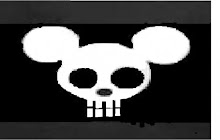Memorial Day is a day set aside to remember those who have sacrificed in the Armed Services. It is usually reserved for those who served their country. While this is important, we should also remember those friends and family members who were left at home to worry, grieve, and if they were lucky, care for their heroes when they returned from the horrors of war. Still, only remembering the sacrifices of these people is not sufficient to truly honoring them. If we wish to honor those who have served, we should remember the situations which required their sacrifice and work to ensure the same sacrifice should not be needed by their children and grandchildren.
We should remember that most of those who have suffered because of the atrocity of war did not start the war. Private Snuffy did not decide on his own that the U.S. should intervene in Vietnam. SGT. Snuffy did not determine whether or not Saddam Hussein should be in power. There are no Rambos in this world. The enlisted men and women do not take it upon themselves to wage wars. That decision rests solely on the shoulders of Congress. (At least it is supposed to be though the office of the president has been working for about 70 years to change it.) We should recognize this and make it a point to elect officials who are less ready to send their constituents to war.
We should remember hearts and minds cannot be changed at the point of knife or barrel of a gun. It is quite the opposite. Violence can only harden hearts towards the violent. Violence can only ignite thoughts of revenge. On Memorial Day, we remember the violence directed towards our fallen brothers, sisters, fathers, mothers, friends, and fellow countrymen and weep that we have lost them. Our hearts are then hardened. Our thoughts towards other countries are turned bitter. The rest of the world does the same towards us for the exact same acts of violence because their soldiers died in those places too.
Our brave men and women deserve to be honored and remembered. They deserve to be honored because they did what they believed to be right. They deserve to be honored because they did what they had to do. I believe we can honor them by seeing what they had to do and making sure others do not have to do it.
On Memorial Day, maybe we can start to forget a few things. Maybe we can forget that which has hardened our hearts. Maybe we can forget the bitter memories towards other countries. Maybe we can forget our violent past and reputation. Maybe if we forget, we can forgive. Maybe if we forgive, we can find better things to remember in the future.
Maybe we will remember the peace we enjoyed when the fighting stopped. Maybe we can remember humanity. Maybe we will remember to love all people. Maybe the rest of the world will remember how we changed and follow us. Maybe someday we will remember and be able to smile.
A Duensing We Will Go – Episode 8.80
9 years ago
